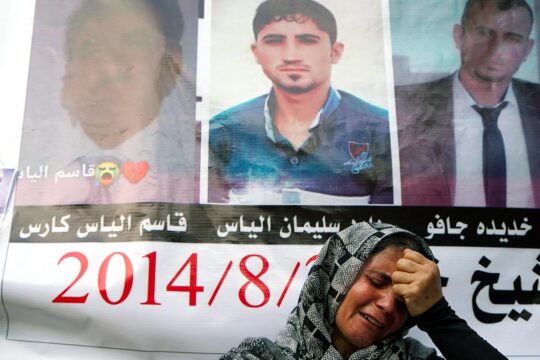Six months after about 1,400 foreign women and children surrendered with Islamic State (ISIS) fighters to Iraqi security forces, Iraq’s courts are sentencing the women to life in prison and even to death for non-violent crimes.
It’s just one indicator of how people viewed as colluding with ISIS are receiving unfair trials.
The women have been charged with illegally entering Iraq and, in some cases aiding, abetting or having membership in ISIS, which carries the penalty of life in prison or death under Iraq’s counterterrorism law.
In January, Baghdad’s Criminal Court sentenced a German woman to death. Two days ago, the same court convicted 11 Turkish women and an Azeri. One of the Turkish women was sentenced to death, and the rest [PS2] to life in prison.
The chief justice said that in these cases, unlike earlier ones of ISIS suspects, the defendants had lawyers present during their interrogations, which would be a positive development.
A courtroom observer said that the women’s lawyers contended that the defendants’ husbands or others had tricked them into going to ISIS territory, but maintained that none of the women had been implicated in any violent acts. One woman said in court that her husband took their 2-year-old son and told her to follow him to Iraq or she wouldn’t see her son again.
The observer said the prosecution did not present evidence contesting the defense. Yet, the judges found all the women guilty of ISIS membership. The woman sentenced to death was found to have knowingly travelled to ISIS territory to join the group with her husband. Human Rights Watch opposes the death penalty in all circumstances as an irreversible, degrading, and cruel punishment.
The Iraqi authorities should develop a national strategy to prioritize the prosecution of those who committed the most serious crimes. For those suspected only of membership in ISIS without evidence of any other serious crime, the authorities should consider alternatives to criminal prosecution. In these cases, the women are getting the harshest possible sentences for what appears to be marriage to an ISIS member or a coerced border crossing. The Iraqi courts need to redirect their priorities.





